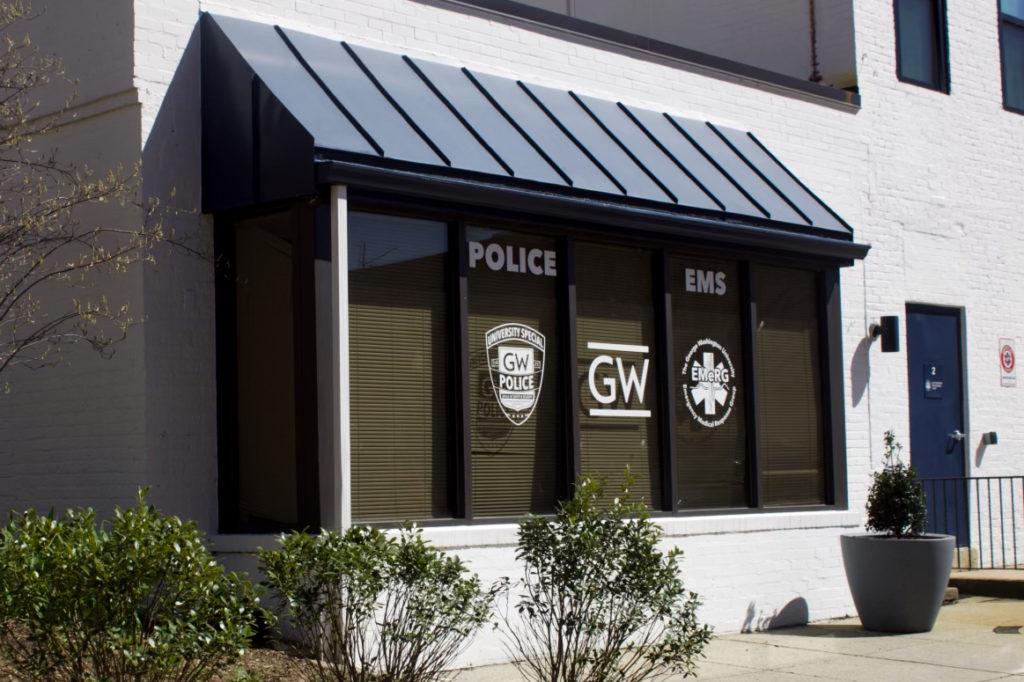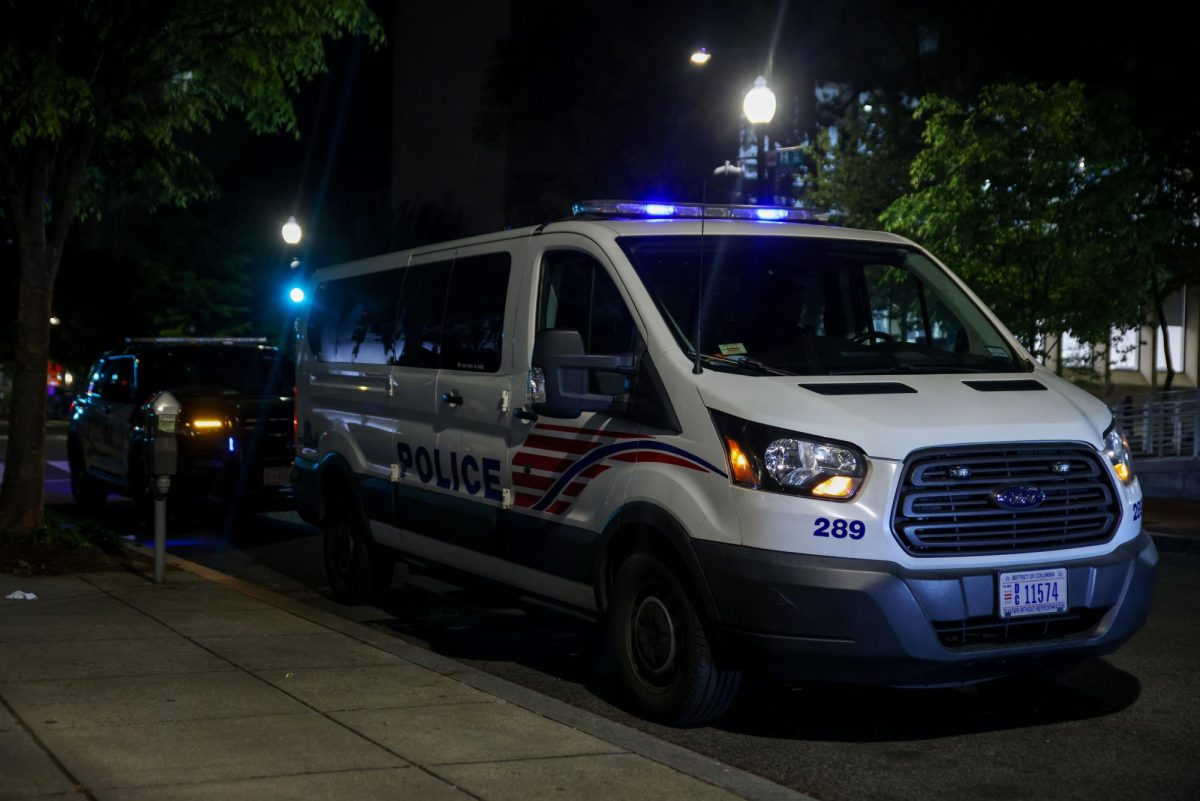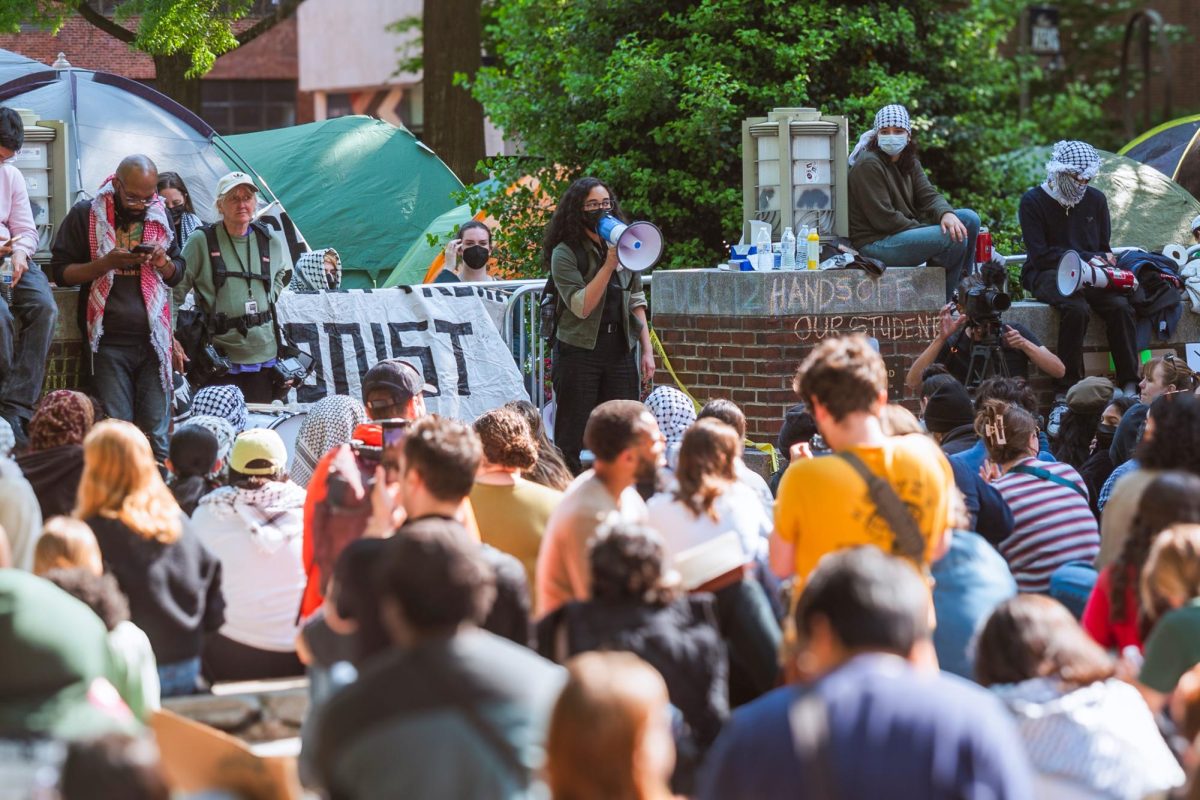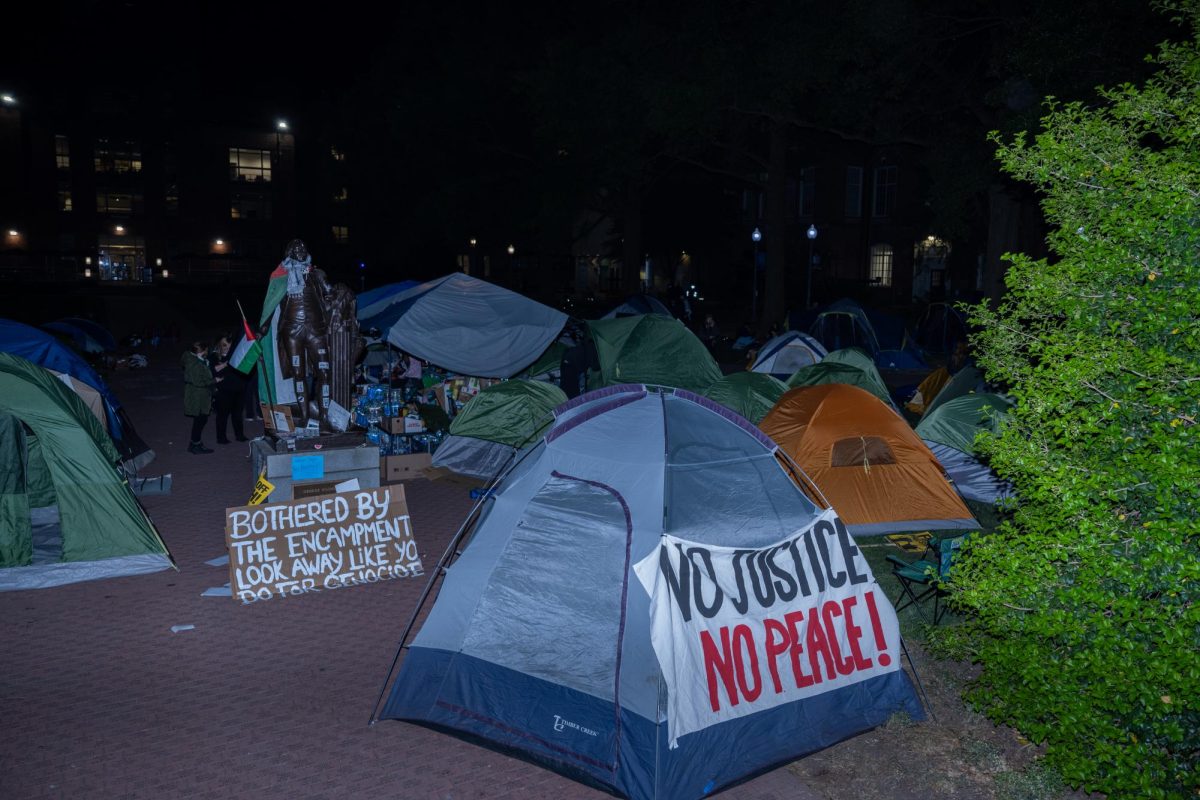GW Police Department officers received more calls for service but arrested fewer people in 2022 than in 2021, according to an annual internal review of department data.
GWPD released its third Annual Statistical Review earlier this year, showing the number of calls for service jumped to a three-year high in 2022, while the number of arrests dropped to a three-year low. GWPD Chief James Tate attributed the uptick in service requests to fewer COVID-19 restrictions on campus and students who might feel more comfortable speaking to officers.
Tate said officers faced fewer interactions that required an arrest, but any reason for the drop in arrests beyond that is “not immediately clear.”
GWPD reported 8,178 calls for service last year, compared to 6,403 requests reported in 2021 and 5,703 in 2020. The department’s arrests fell to 15 in 2022, down from 32 arrests in 2021 and 26 in 2020, according to the review.
“GW is a world-class institution, and it deserves a world-class police department,” Tate said. “To reach that goal, we must continue to build trust and legitimacy with our community, and that is an everyday effort.”
GWPD reported that it investigated five internal complaints about department employee conduct in both 2021 and 2022 after reporting just three investigations in 2020.
“The five investigations initiated by the department were largely regarding policy violations,” Tate said. “We acknowledged those shortcomings and implemented the appropriate corrective action.”
The review states GW community members submitted one formal citizen complaint in 2022, one in 2021 and two in 2020 over policy violations, including rudeness, excessive force and biased policing. Tate said the one complaint from last year revealed a department employee failed to provide the level of service expected by the department.
“Appropriate corrective action was taken to address the issue,” Tate said.
Tate said GWPD conducts “random audits” of body-worn camera footage at “regular intervals,” which may be responsible for the slight increase in sustained internal complaints – officer violations that result in departmental action – from 3 in 2020 to 4 in 2021 and 5 in 2022. He said the audits allow the department to review interactions with the public, ensure compliance with body-cam policy and detect any “minor issues” before they develop into “major” ones.
GWPD purchased body-worn cameras in August 2020 to improve relations with the student body through enhanced accountability and transparency within the department. The cameras’ rollout followed an incident where an officer pushed a student at a protest against fossil fuel funding at F Street House earlier that February.
“Footage helps us understand if we have a training issue that needs to be addressed or a performance issue that may require a combination of corrective action and additional training,” Tate said in an email earlier this month. “Either way, we address the issue.”
Complaints against GWPD officers and arrests have declined since the department released its first review in 2021, which came after the Black Student Union sent a letter to the department in June 2020 demanding officials improve relations with students after complaints of officers’ alleged racial bias. The first iteration of the report in 2021 included data from 2018, 2019 and 2020 and showed drops in complaints, arrests and calls for service after they largely peaked in the first year of data.
In an effort to lower barriers between officers and students, GWPD has started organizing community outreach events this school year, like the Raise High with GWPD meet-and-greet in September and monthly Coffee with the Chief, where students can have a conversation with Tate in Phillips Hall.
GWPD also hired two student outreach liaisons in late February to help organize community outreach events, create infographics about GWPD activities and serve as points of contact for students not comfortable speaking with officers.
Emir Johnson, a junior studying criminal justice and a student outreach liaison, said due to one of the reforms Tate brought to GWPD, officers will only enter a residence hall room in response to an alcohol violation if “needed,” first deferring to EMeRG responders to enter the room.
“I think that’s one of the ways that you kind of eliminate that need for police officers,” Johnson said.
Gabriela Angel, a senior studying international affairs and history and a student outreach liaison, said officers must be “accountable” so students can receive the “best service.” She said she has organized “constant” student liaison tabling events so students can feel comfortable sharing any “weird” GWPD officer experiences instead of filing formal reports.
“There are so many situations that go unreported, and that is because the student feels weird or doesn’t know how to reach out to the police or feels intimidated by reaching out to the police,” Angel said.
More than 50 percent of violent crime and about 70 percent of property crime goes unreported nationwide, according to a September 2022 Bureau of Justice Statistics report.
Experts in criminology said low neighborhood crime and the department’s reporting method could also explain the drop in complaints and arrests outlined in GWPD’s internal review.
Richard Rosenfeld, a professor emeritus of criminology at the University of Missouri-St. Louis, said while GWPD’s student outreach is a “good idea,” departments should not stop at organizing community events, and officers should actively engage with the community when working or on patrol.
“The idea there is for the police to engage with students outside of situations in which the student is being treated as a suspect or as a victim of a crime,” Rosenfeld said. “On a regular basis, the police should engage with students and faculty and other staff at the University.”
Rosenfeld said he considers GWPD’s “handful” of arrests “low” on a campus of more than 15,000 students, and shrinking crime rates in surrounding communities and calls for service that primarily involve non-criminal concerns could account for the small number of arrests.
Metropolitan Police Department records show that crime in Ward 2 decreased more than anywhere else in the District last year, which Advisory Neighborhood Commissioner Jordan Nassar partially attributed to MPD and GWPD police patrols at the time. Violent crime dropped by seven percent across D.C., while property crime dropped by four percent in 2022 compared to 2021 data, MPD crime records show.
“If they’ve become safer, one would expect the same thing to happen on campus,” Rosenfeld said.
Michael Scott, a clinical criminology professor at Arizona State University, said students who must engage in a lengthy, in-person complaint process are less likely to file complaints than those who can file paperwork anonymously through their phone. Individuals can email the department to file complaints against GWPD officers.
“Some departments make it very easy to file that complaint, you can do it anonymously, you can do it over the phone, you can do it by email or text,” Scott said. “Other departments have much more stringent requirements.”










